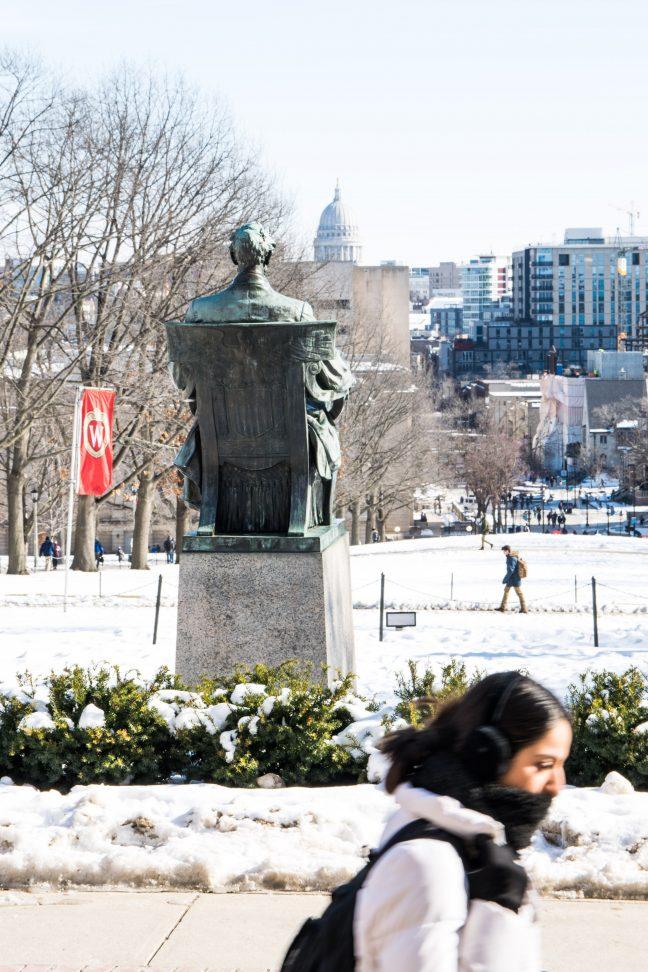As part of the nationwide 2020 Census, the City of Madison worked with the University of Wisconsin to get an accurate count of the student population in the city.
According to the United States Census 2020 website, the Census counts every person living in the 50 states, District of Columbia and five U.S. territories, including Puerto Rico, American Samoa, the Commonwealth of the Northern Mariana Islands, Guam and the U.S. Virgin Islands. The count is constitutionally mandated and will be conducted by the U.S. Census Bureau.
The count will be based on where people live on April 1, 2020, according to UW News. As a result, most UW students will be counted at their addresses on campus.
According to UW News, the count will begin in March, and each home will receive a mailed invitation to complete a short questionnaire online, by phone or by mail.
According to the Census 2020 website, the results of the census will help inform the allocation of federal funding to different states and communities.
Having an accurate count of the city’s population, students included, is especially important as the numbers will then be used to determine how much federal funding Madison could have access to, according to NBC15.
City of Madison Planning Division member, Ben Zellers, said a lot of federal programs are informed by information gathered through the census. These include programs that address affordable housing, childcare, healthcare, education, transit, roads and many more.
“The census is about representing the population of the country in terms of the people that are living here when the census is taken. Whether it’s college students that move to Madison from somewhere else in the state or country or college students that are attending internationally,” Zellers said. “We need to know what the population in the area is to make sure that the city, [and] the county gets its fair share of funding to be able to provide necessary services for everybody that’s living in the city.”
In an interview with NBC15 Zellers further emphasized the importance of conducting such census as accurately as possible, as the results will impact not only 2021 but also the next 10 years until the next census is taken.
Besides helping the federal government allocate resources, census results will also be used to determine the number of seats each state will have in the House of Representatives and be used in drawing congressional and state legislative districts, the Census 2020 website stated.
To ensure greater accuracy of the census results, the Complete Count Committee was set up to help include hard-to-count populations in the census. According to NBC15, the student body is one such example of the hard-to-count population.
Zellers said the high mobility of students makes the counting more difficult.
“They’re moving every year, sometimes they’ll be in different places in the summertime,” Zellers said in an interview with NBC15.
To help ensure all students get counted, the City of Madison is working together with UW to raise awareness of the census among students, according to NBC15.
One approach is through cooperating with UW Housing. According to NBC15, House Fellows working at UW residence halls will help inform their residents of the upcoming census and provide them with assistance on how to get involved.
Zellers said there are two different ways UW students could participate based on where they live. For students who are living in residence halls, they will receive paper forms distributed through the university. They will then respond to the census by submitting the forms within their dorms.
Students living in apartments and off-campus houses, Zellers said, will be treated like other residents in the city. They will receive direct invitation mailed to their addresses and respond online, by phone or by mail.
UW senior Kennedy Krause, who is not from Madison, said it is important to have an accurate count of students at the university even though many of them are not from Wisconsin and only live on campus during school semesters. Krause said this is because they make up an important portion of the student body, and thus should not be overlooked.
“We need an accurate representation [of the student population] to be able to get good resources … that is going to help us … in the long run,” Krause said.
To further raise awareness, UW plans on setting up a website dedicated to the topic, providing students with more information on the census, as reported by NBC15.
UW Director of Community Relations Brenda González said the university is also working on spreading the message across different platforms.
“[Communication is] not going to be only via email but also social media — students are going to be able to access that information on their phones,” Gonzalez said in an interview with NBC15.
UW News reported personal information collected during the census will be kept confidential by the Census Bureau and is not allowed to be shared with other governmental agencies, landlords or credit agencies, in accordance with the federal law.


